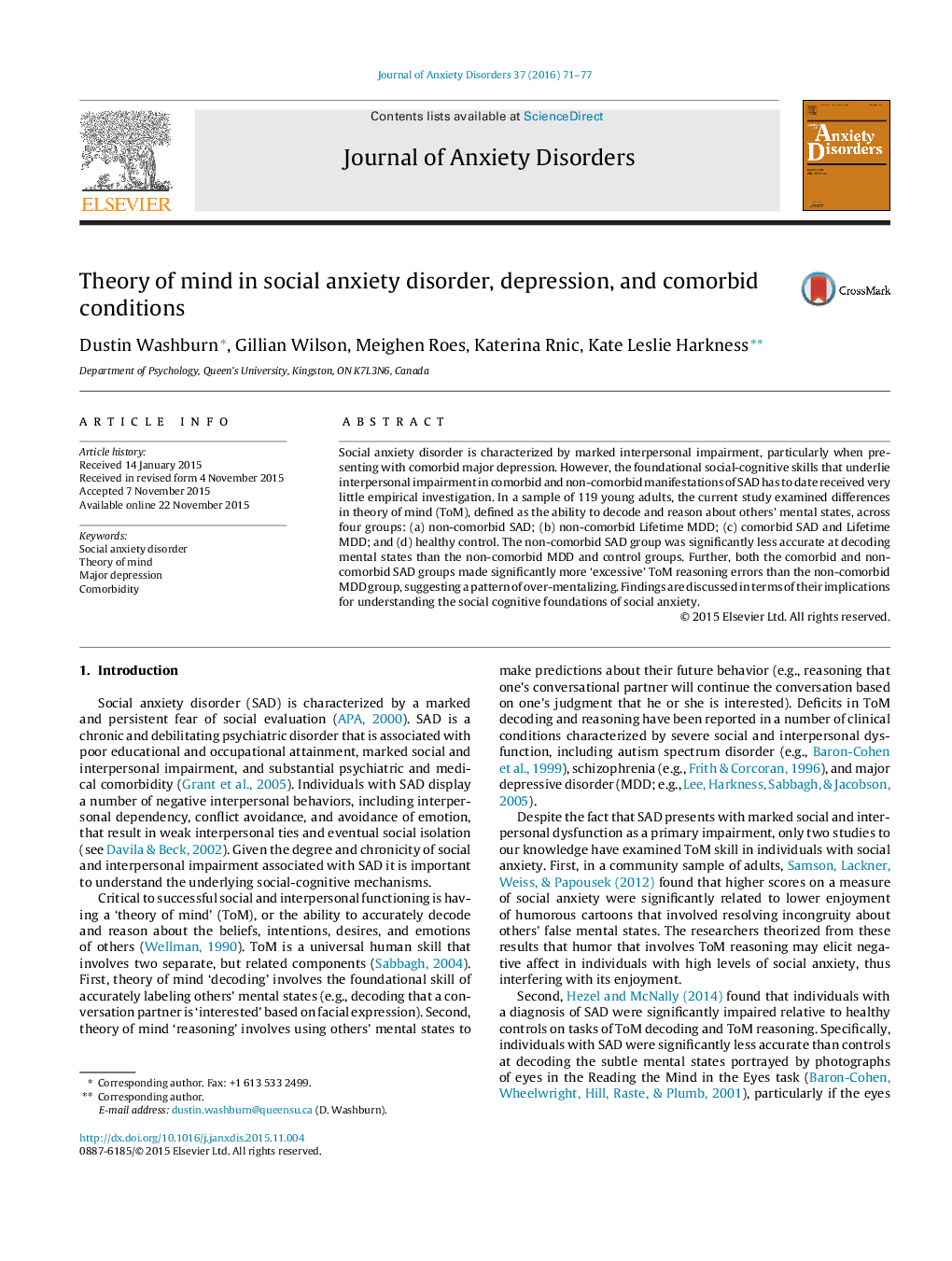| Article ID | Journal | Published Year | Pages | File Type |
|---|---|---|---|---|
| 909227 | Journal of Anxiety Disorders | 2016 | 7 Pages |
•We examined theory of mind in social anxiety disorder and lifetime depression.•Socially anxious individuals performed significantly worse than depressed individuals.•Socially anxious individuals made more excessive errors than depressed individuals.•Fostering optimal levels of social sensitivity may improve interpersonal impairment.
Social anxiety disorder is characterized by marked interpersonal impairment, particularly when presenting with comorbid major depression. However, the foundational social-cognitive skills that underlie interpersonal impairment in comorbid and non-comorbid manifestations of SAD has to date received very little empirical investigation. In a sample of 119 young adults, the current study examined differences in theory of mind (ToM), defined as the ability to decode and reason about others’ mental states, across four groups: (a) non-comorbid SAD; (b) non-comorbid Lifetime MDD; (c) comorbid SAD and Lifetime MDD; and (d) healthy control. The non-comorbid SAD group was significantly less accurate at decoding mental states than the non-comorbid MDD and control groups. Further, both the comorbid and non-comorbid SAD groups made significantly more ‘excessive’ ToM reasoning errors than the non-comorbid MDD group, suggesting a pattern of over-mentalizing. Findings are discussed in terms of their implications for understanding the social cognitive foundations of social anxiety.
